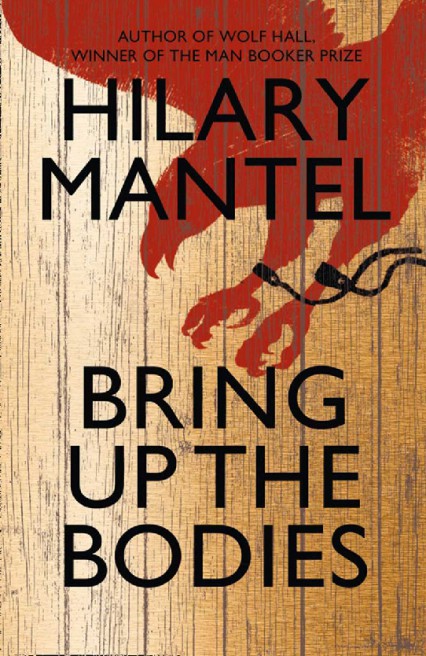Claire Hougeuz delves into the world of historical fiction in her review of Bring Up the Bodies by Hilary Mantel.

Ask anyone at a dinner party which Shakespearean phrases have been absorbed into use today and, after a few forehead wrinkles, you may be answered with all that glitters is not gold, bated breath, neither a borrower nor a lender be, or break the ice.
So, too, have Shakespeare’s historical characters anchored themselves in our cultural consciousness, despite being often inaccurate. Most famous is his portrayal of Richard III, to whom a hunchback was added to reinforce his evilness: a representation that went on to eclipse reality.
There seems current to be a trend towards the humanisation of the ‘bad guys’ of history. History was stretched too far for some by the sympathetic portrayal of Margaret Thatcher in the recent biopic.
Reviews of Mantel’s Booker-winning novel Wolf Hall chiefly commented on the softer side of her ‘surprising fictional hero’ (The Guardian) Thomas Cromwell – destroyer pf monasteries and men, painted by biographers as sinister and corrupt. Sequel Bring up the Bodies returns to Cromwell’s activities behind the scenes of Anne Boleyn’s downfall.
When Hilary Mantel began the anticipated trilogy, she wanted to take something that people think they know about and show them a whole new side. She says ‘once you stand in Cromwell’s shoes, all the viewpoints change and everything comes up differently.’ A delicate balance of research and imaginings ensues. Mantel admits that lack of knowledge about Cromwell’s personal life has been a problem, but her authorial instincts lead her to gleefully note that ‘it is also an opportunity’.
4th Estate describes Bring Up the Bodies as ‘a speaking picture’, an attempt perhaps to engage or rival our insatiable appetites for historical film or period drama. A cast list is provided, and Mantel assumes the role of our guide. The prose is dialogue-based, and scenes move quickly through various court locations, with only a sentence or two of directions to allow us our bearings. Mantle recalls, at intervals, our presence as ghostly third parties in the drama, and lines like ‘we’ve seen some panic-stricken plastering these last few weeks’, or ‘look: we have sat here too long’ can irritate.
Like Wolf Hall, the novel is enjoyable for its behind-the-scenes feeling, and the pleasure of riding alongside a powerful figure continues. Mantel assumes a little prior knowledge of returning characters and does not waste words recapping. Her sensuous, controlled prose loftily glides over the self-consciously ‘historical’ diatribes such novels often fall in to. Mantel’s narrative leaves much unsaid, mirroring the careful, coded language of the court she is describing, where ‘a coded glance is enough, a nod and a wink’.
As Mantel has said, we are in Cromwell’s shoes, and, in the light of the immorality and hysteria around him, of course, he seems an enlightened, modern man. However, occasional glimpses of cruelty show through a tone of affable reasonableness, with chillingly casual references to the ‘necessary art’ of hanging groups of people, or arranging accidents for those closer to home. Yet Mantel’s Cromwell takes waifs and strays into his home, passes on treasured items belonging to his deceased daughter to the children of friends, and values the kindnesses of strangers.
Cromwell himself observes in the novel that ‘men who have not met him dislike him, but when they have met him, only some of them do’. We feel we have met him, through Mantel’s characterisation, and I challenge anyone not to breathe a little faster in the closing moments where his favour hangs in the balance.
It is widely accepted that Shakespeare compressed events, altered locations and exaggerated actions, but these inaccuracies are accepted because of their necessity to the plays’ political observations. Modern Revisionist histories have long relished subversions of the accepted truth. Historical events can be told in a way that reflects parallels with the power structures of our own times, to explain the foundations of where we are now.
For me, the question now raised by Mantel’s depiction of Cromwell, and our eager reception of it, is what does it say about us, and our times, that we are so keen to see the kinder sides of the bad guys?
Hilary Mantel‘s Bring Up the Bodies is out now.
Another review by Claire Houguez is available here.











